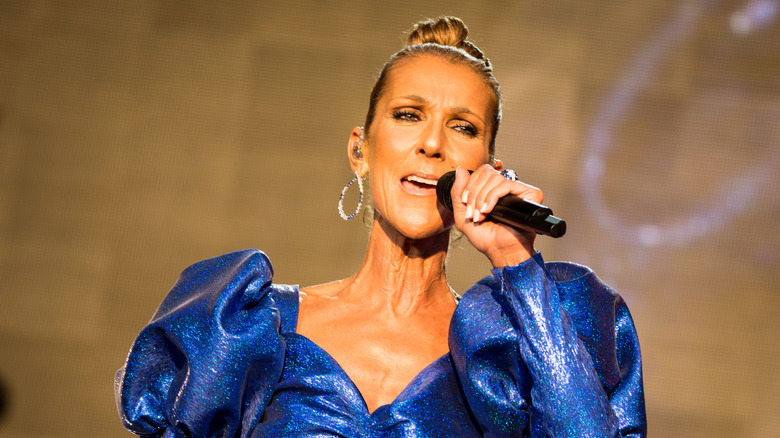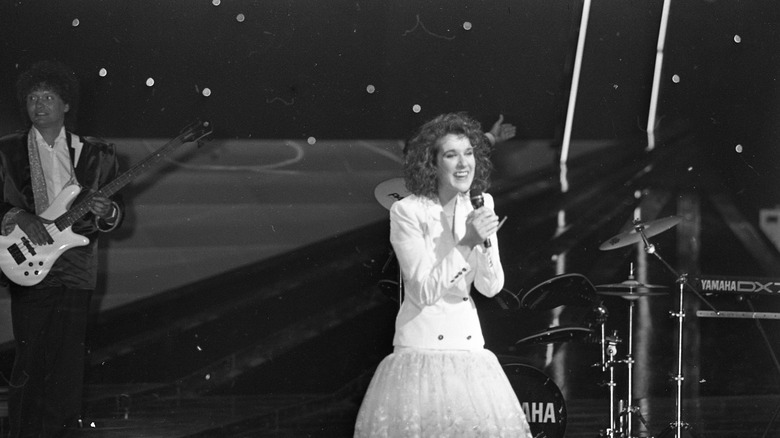How Eurovision Forever Changed Celine Dion's Life
It came down to the final seconds of the competition, but a 20-year-old woman from Montreal representing Switzerland pulled out the 1988 Eurovision win. It was April 30, 1988, and Celine Dion had just performed in front of an international television audience of somewhere around 600 million at the international music competition held that year in Dublin, Ireland. While she had been recording since age 13 and was well known in Canada and France she remained virtually unknown in the U.S. and elsewhere in the world. That all suddenly changed.
As the final results came in and Dion learned she'd just beat out the U.K.'s entry, Scott Fitzgerald, along with finalists from 19 other countries, she burst into tears. The next day, she told the Irish TV network RTE that she believed she would win because everyone, including the news media, believed she would. "You know, to be the number one in the newspapers, it's not the important thing to me," she told the reporter. "It was to be the number one yesterday on stage in front of the audience. It was the important thing for my career, for my life."
A Canadian sensation takes an international stage
Celine Dion came from humble roots, the youngest of 14 children, but even early on it seemed this French Canadian was destined for success. By the time she was selected to participate in Eurovision, she already had nine albums under her belt but had yet to make a record in English. Eurovision was a huge platform. The song competition had been around since 1956 and was the launching pad for such popular recording artists such as ABBA, Julio Iglesias, and Olivia Newton-John.
Not long before the competition that would take her career to another level, Dion began experiencing problems with her voice while touring for her 1987 album "Incognito." She lost her voice on stage and couldn't continue performing. A specialist in New York had to work with her on vocal training which began with the admonition that she couldn't speak for three weeks. This was the first but not last time the singer would face problems with her voice, just one aspect of the tragedy of Celine Dion. By the time of the Eurovision competition, she was once again ready to take the stage.
Celine Dion for the win
The Eurovision competition was tight and Celine Dion's win with the song "Ne partez pas sans moi" came down to a single point, 137 to 136. The international win thrust her into the worldwide spotlight. The press conference after the event included around 700 journalists, followed by a celebratory homecoming in Canada. She kicked off an international tour a little more than a week later. It was the start of a huge career as one of the most successful female singers in history with a total of 27 studio albums and millions of fans.
The night of Dion's big win also included a hugely important turn in her private life, when her professional relationship with her producer René Angélil, who was 26 years older, became romantic. They would later marry and have three boys before his death in 2016. A few years after her husband's death from cancer, doctors diagnosed Dion with a rare progressive disease called stiff-person syndrome that affects the nervous system and kept her from performing. Until, that is, her appearance during the Olympics in Paris, France, in 2024. Dion's life has taken many twists and turns, but professionally, it was her Eurovision win that helped her get to the top.

